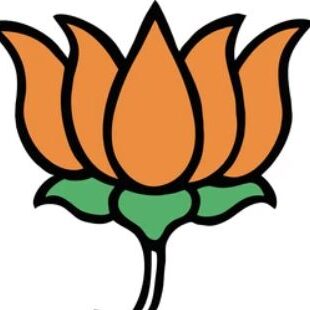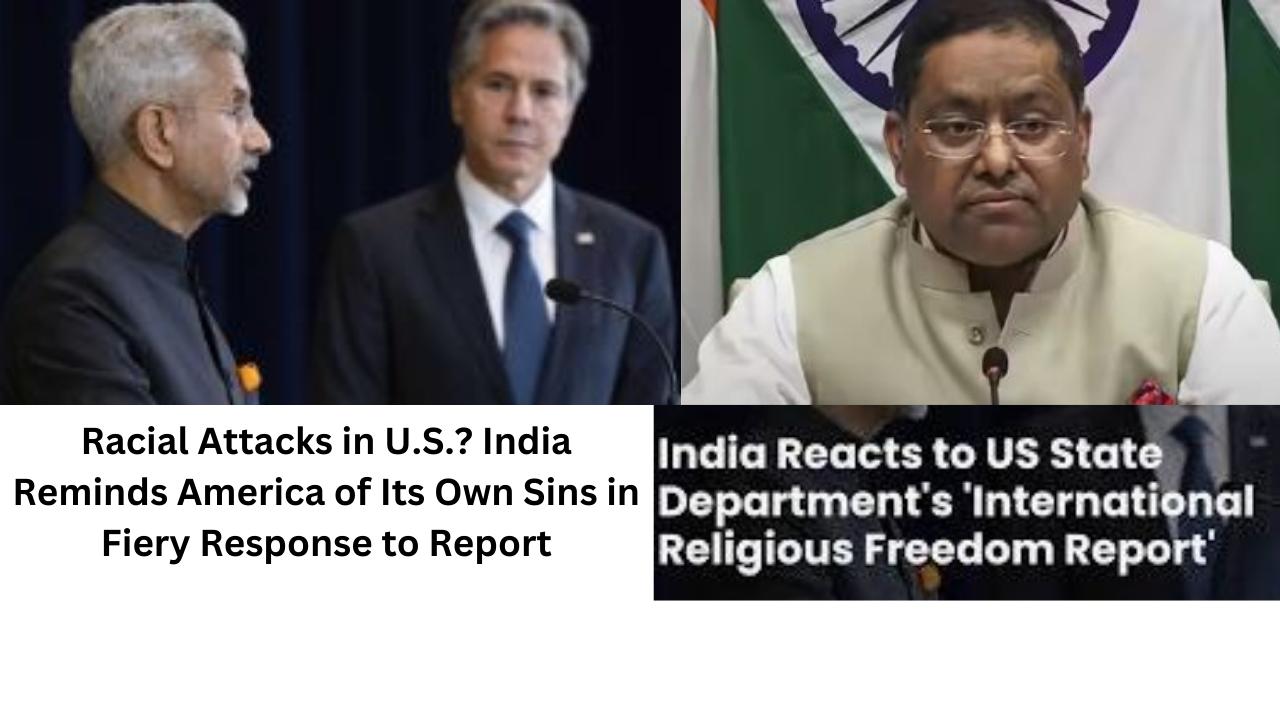India Calls Out U.S. Hypocrisy Over Religious Freedom Report
India has vehemently criticized the U.S. State Department’s report on religious freedom, labeling it as “deeply biased” and “visibly driven by vote bank considerations and a prescriptive outlook.” The report, which highlights alleged violent attacks on minority groups in India and references the ongoing violence in Manipur, has been met with strong disapproval from the Indian government.
In a robust response, Ministry of External Affairs (MEA) spokesperson Randhir Jaiswal countered the U.S. allegations by pointing out incidents of racial attacks on Indians and vandalism at places of worship within the United States. He contended that the report was “deeply biased” and influenced by political motivations rather than objective facts.
The contentious report on religious freedom, released on June 26, 2024, has intensified diplomatic friction between the two nations. India has outrightly rejected the findings, accusing the U.S. of overstepping its mandate by commenting on India’s internal affairs. This response underscores India’s stance that such reports are an infringement on its sovereignty and an unwarranted critique of its domestic issues.
The exchange reflects the ongoing and complex tensions between India and the U.S. over sensitive topics such as religious freedom and minority rights. Both countries remain steadfast in defending their respective positions on the international stage, indicating that this issue will continue to be a point of contention in their bilateral relations. This situation highlights the intricate and often fraught nature of international diplomacy when it intersects with internal sociopolitical matters.
The U.S. report on religious freedom, which highlights concerns about the treatment of minority groups in India, has not only strained diplomatic relations but also sparked a broader debate about the role of international oversight in domestic affairs. India’s rejection of the report’s findings and its accusations of bias reflect a broader sentiment of sovereignty and self-determination.
Key Points of Contention
- Allegations of Violence: The U.S. report details incidents of violence against minority groups in India, including specific references to the unrest in Manipur. These allegations have been a focal point of the critique, with Indian officials arguing that such issues are complex and multifaceted, often influenced by local dynamics that external observers might not fully understand.
- Bias and Political Motivation: The Indian government has strongly suggested that the U.S. report is politically motivated. By describing it as “driven by vote bank considerations,” Indian officials imply that the report serves domestic political agendas in the U.S. rather than providing an unbiased assessment of the situation in India.
- Comparative Criticism: MEA spokesperson Randhir Jaiswal’s remarks about racial attacks and vandalism in the U.S. serve as a counter-critique, suggesting that the U.S. has its own significant issues with religious freedom and racial violence. This argument aims to highlight perceived double standards and to question the U.S.’s moral authority to critique other nations.
Diplomatic Repercussions
The strong language used by India in its rebuttal signifies a deepening rift that could have several implications:
- Bilateral Relations: The dispute over the report could complicate diplomatic relations, affecting cooperation in areas such as trade, defense, and technology. Both nations may find it more challenging to engage in constructive dialogue if such sensitive issues remain unresolved.
- International Perception: How this conflict is perceived globally could influence India’s and the U.S.’s standings on international human rights platforms. Both countries might use international forums to bolster their arguments and seek broader support.
The Path Forward
Despite the current tensions, there are pathways to ameliorate the situation:
- Diplomatic Engagement: Continued diplomatic engagement is essential. Both countries need to keep communication channels open to manage differences and find common ground.
- Joint Initiatives: Initiating joint efforts to address mutual concerns about religious freedom and minority rights could pave the way for more cooperative and less adversarial relations. This could involve collaborative projects, dialogues, and exchanges focused on best practices and policy improvements.
- Domestic Improvements: Both countries could benefit from introspection and improvements within their borders. Addressing and mitigating issues of religious freedom and minority rights domestically could strengthen their positions internationally.
Conclusion
The clash over the U.S. State Department’s report on religious freedom underscores the complexities inherent in international relations, especially when they intersect with sensitive domestic issues. India’s staunch rejection and the ensuing diplomatic tensions highlight the challenges of navigating sovereignty, human rights, and international critique. Moving forward, both nations will need to balance their domestic agendas with their international responsibilities to foster a more cooperative global environment.











